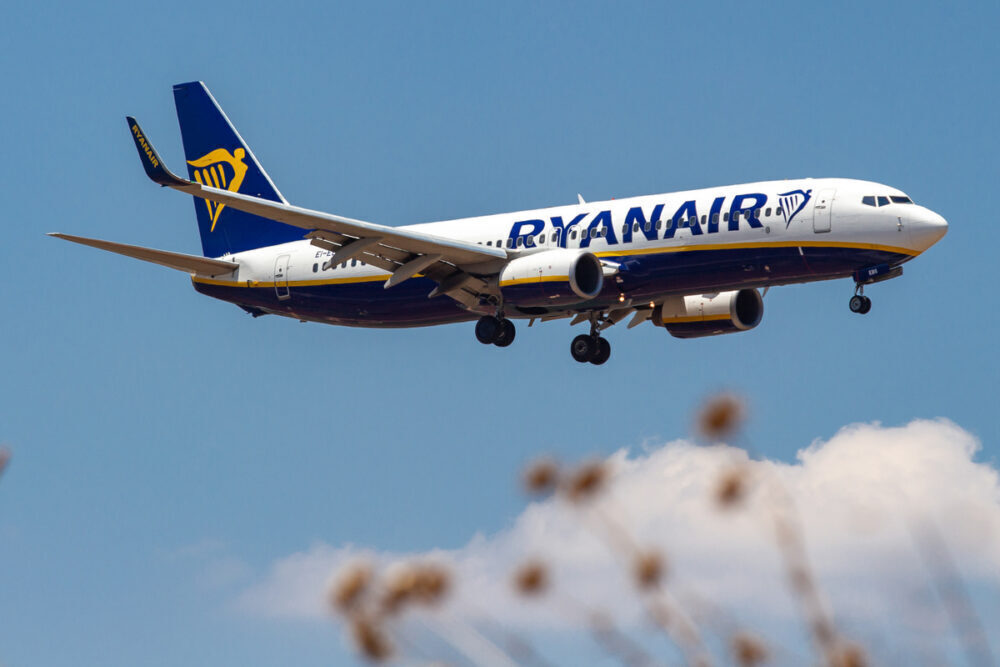Ryanair has set a target to power its flights using 12.5% sustainable aviation fuel by 2030, far more than the proposed EU sustainable fuel mandate. While acknowledging the need for such ambitious goals, the airline’s CEO Michael O’Leary says he is also concerned about what impact the proliferation of SAF usage might have on food prices in the future.

Challenges in the next ten to twenty years
Ryanair boss Michael O’Leary is known to make a head-turning comment or two at regular intervals. During a conversation at news outlet CNBC’s Sustainable Future Forum last week, the budget carrier CEO said he worries about the proliferation of sustainable aviation fuels (SAF) having an upward impact on food prices.
The European LCC giant has partnered with Trinity College Dublin, donating €1.5 million ($1.75 million) to launch a sustainable aviation research center, focusing heavily on advanced biofuels. Ryanair has also set itself a highly ambitious target of using 12.5% SAF to power its planes by 2030. Even so, the airline’s boss is concerned about consequences beyond the immediate impact on the industry.
“I do worry over the longer term, though, on sustainable aviation fuels … what’s that going to do to food prices going forward? (…) I think we’re going to reach a point in the next ten or 20 years where there will be challenges posed not just for the airline industry, but for industry in general,” O’Leary said in last week’s interview with CNBC’s Steve Sedgwick.

Investment needed now for future results
The European Union is targeting a 2% SAF blending mandate starting in 2025. This will then increase to 5% by 2030. As for Ryanair’s self-proclaimed goal of 12.5%, even the airline’s own chief is not too optimistic – but he is willing to give it his best shot.
“The European Union has set a target of 5% of sustainable aviation fuel by 2030. We think we can do better than that – I think we’ll get to 10%. Whether we can get to 12 and a half %, I’m not sure, but I know if we don’t invest in the research and that technology now, we certainly won’t get there,” O’Leary continued.
Exactly how advanced biofuels would affect food prices, O’Leary did not elaborate on. Feedstock for SAF comes from a large variety of sources, such as biological waste, used cooking oil, agricultural or forestry residue. There are also emerging power-to-liquid technologies such as CO2 electrolysis and non-edible oilseed plants that could prove as cost-effective as fossil-based fuels. However, the terms’ sustainable aviation fuel’ and ‘biofuel’ are not directly interchangeable.

First-generation vs. advanced biofuels
There are plenty of first-generation biofuels, the sustainability of which could be called into question – specifically due to high indirect land use. While companies such as Neste are gathering used cooking oil from McDonald’s’ french fries across the Netherlands, most biofuels used in the EU today come from sources such as rapeseed, soy, and palm oils, as well as wheat, maize, and sugar beet.
That is why genuinely sustainable fuels have the added description’ advanced biofuels’. As the International Council on Clean Transportation states, efforts should be made by the nascent SAF production industry to target fuels derived from nonfood feedstock as early on as possible. However, when making SAF production calculations, one may perhaps also need to take into account the threat to global food security caused by global warming.
What are your thoughts on Mr O’Leary’s comments? Leave a few words in the section below and join the conversation.
from Simple Flying https://ift.tt/3mdcF48
via IFTTT
Comments
Post a Comment